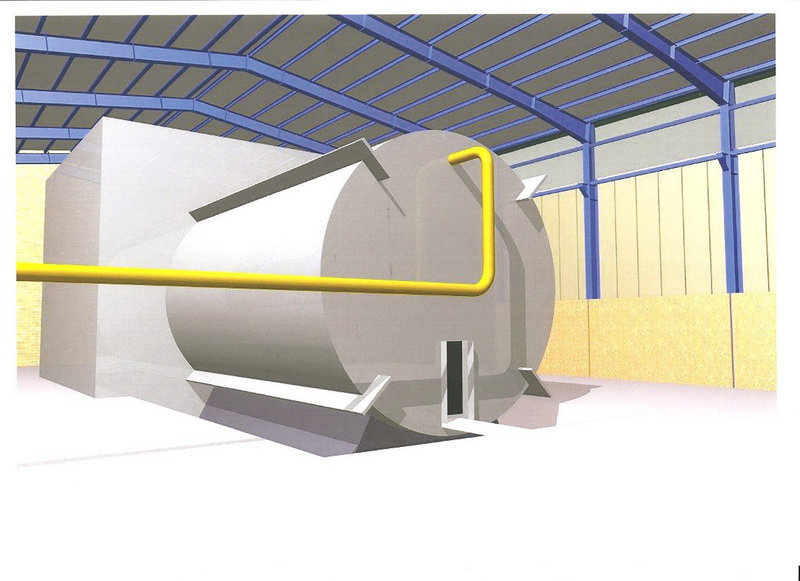VIENNA – A drawing based on information from inside an Iranian military site shows an explosives containment chamber of the type needed for nuclear arms-related tests that U.N. inspectors suspect Tehran has conducted there. Iran denies such testing and has neither confirmed nor denied the existence of such a chamber.
The computer-generated drawing was provided to The Associated Press by an official of a country tracking Iran’s nuclear program who said it proves the structure exists, despite Tehran’s refusal to acknowledge it.
That official said the image is based on information from a person who had seen the chamber at the Parchin military site, adding that going into detail would endanger the life of that informant. The official comes from an International Atomic Energy Agency member country that is severely critical of Iran’s assertions that its nuclear activities are peaceful and asserts they are a springboard for making atomic arms.
A former senior IAEA official said he believes the drawing is accurate. Olli Heinonen, until last year the U.N. nuclear agency’s deputy director general in charge of the Iran file, said it was “very similar” to a photo he recently saw that he believes to be the pressure chamber the IAEA suspects is at Parchin.
After months of being rebuffed, IAEA and Iranian officials meet starting today in Vienna, and the IAEA will renew its attempt to gain access to the chamber, allegedly hidden in a building. Any evidence that Iran is hiding such an explosives containment tank, and details on how it functions, are significant for IAEA investigations.
Beyond IAEA hopes of progress, that two-day meeting is being closely watched by six powers trying to persuade Iran to make nuclear concessions aimed at reducing fears that it may want to develop atomic arms, as a mood-setter for May 23 talks between the six and Tehran in Baghdad.
Warnings by Israel that it may attack Iran’s nuclear facilities eased after Iran and the six — the United States, Russia, China, Britain, France and Germany — met last month and agreed there was enough common will for the Baghdad round. But with the Jewish state saying it is determined to stop Iran before it develops the capacity to build nuclear weapons, failure at the Iraq talks could turn such threats into reality.
In Tehran on Sunday, Saeed Jalili, Iran’s top nuclear negotiator, said it was up to the Western nations coming to the Baghdad talks to “build trust of the Iranian nation,” adding, “Any kind of miscalculation by the West will block success of the talks.”
Copy the Story Link
Send questions/comments to the editors.



Success. Please wait for the page to reload. If the page does not reload within 5 seconds, please refresh the page.
Enter your email and password to access comments.
Hi, to comment on stories you must . This profile is in addition to your subscription and website login.
Already have a commenting profile? .
Invalid username/password.
Please check your email to confirm and complete your registration.
Only subscribers are eligible to post comments. Please subscribe or login first for digital access. Here’s why.
Use the form below to reset your password. When you've submitted your account email, we will send an email with a reset code.